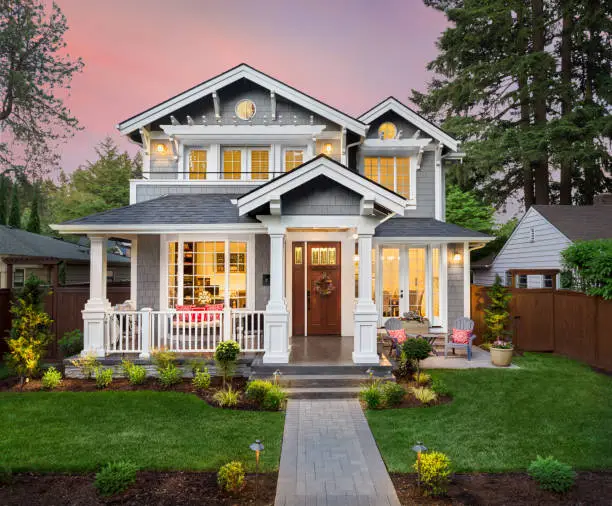
Introduction
In today’s fast-paced world, time is of the essence. This sentiment echoes true even in the real estate sector. Homeowners often find themselves pondering, “How can I sell my old house fast?”, or “how to sell an older home hassle free?” Especially when the pressures of relocating for a job, handling a financial crunch, or simply wanting to start afresh in a new space emerge. While the housing market offers a myriad of pathways for selling homes, not all guarantee a quick and efficient sale.
The desire to expedite the home selling process is not merely about impatience. It’s about practicality. Longer listing periods can mean more mortgage payments, maintenance costs, and, crucially, mental stress. Moreover, the longer a house stays on the market, the more potential buyers might wonder if something’s amiss.
But fear not! There are strategies and tips for selling an older home designed specifically to help homeowners like you navigate the complexities of the real estate realm and sell your house fast. Whether it’s understanding the nuances of cash buyers, boosting your property’s curb appeal, or navigating the expansive world of real estate agents – this guide aims to equip you with the insights you need.
So, buckle up as we delve deep into the mechanics of selling your home swiftly and ensuring you move onto your next chapter with both peace of mind and pocket.
Benefits of Selling Your House Fast

Selling a home is not just a financial decision; it’s an emotional one. The connection you’ve built with your space, the memories crafted within its walls, all contribute to the weight of this decision. But while sentimentality is integral, there are undeniable advantages to selling your house quickly. Here’s why you might want to consider hastening the sale:
- Financial Savings: Longer listing durations mean an accumulation of expenses. Every additional month equates to another mortgage payment, utility bills, maintenance costs, and even potential price reductions to keep your listing attractive. By selling quickly, you bypass these prolonged expenditures, retaining more money in your pocket.
- Reduced Stress: The uncertainty that comes with a lingering house on the market can be emotionally taxing. Daily worries about potential buyers, house showings, or constantly maintaining a home in “viewing condition” can weigh heavy on one’s mind. A rapid sale alleviates these stressors, allowing you to move forward confidently.
- Avoiding Market Fluctuations: The real estate market is ever-evolving. Prices can soar or plummet based on various macroeconomic factors, seasonality, or even neighborhood developments. By selling your house fast, you lock in your property’s value, ensuring you don’t fall victim to unfavorable market dips.
- Simplified Negotiations: Potential buyers often sense an advantage in negotiations when a property has been listed for an extended period. They might assume you’re desperate to sell, leading to lower offers. A fast sale eliminates this leverage, often resulting in better sale terms and higher offers.
- Efficient Transition: If you’re relocating for work, experiencing a lifestyle change, or have already purchased a new home, selling your current house quickly ensures a smoother transition. It eliminates the potential juggle between two properties and streamlines the moving process.
- Reduced Real Estate Agent Commissions and Closing Costs: In some fast sale scenarios, especially with cash buyers, there are opportunities to reduce or even bypass traditional real estate agent commissions. Moreover, quicker sales can sometimes lead to savings on closing costs.
- Higher Probability of Selling at or Near Asking Price: Homes that sell quickly tend to go for closer to their listed price. The longer a house stays on the market, the more likely price reductions become, chipping away at your potential profit.
In essence, while the journey of selling a home is personal and varied for everyone, the benefits of a quick sale are tangible and often lead to more favorable outcomes, both emotionally and financially. As we dive deeper into this guide, we’ll explore how to harness these benefits to your advantage.
The Advantages and Drawbacks of Working with a Real Estate Agent

Engaging a real estate agent is one of the most common routes homeowners take when selling their property. Their expertise and familiarity with the local market can be invaluable. However, as with most decisions in the real estate arena, there are pros and cons to consider. Let’s unpack the advantages and potential drawbacks of partnering with a real estate agent:
Advantages:
- Deep Local Market Knowledge: An experienced real estate agent has intimate knowledge of the local market dynamics. They understand prospective buyers preferences, price points, and the competitive landscape, ensuring your house is positioned optimally.
- Access to a Network of Potential Buyers: Agents come with a built-in network. This includes other local real estate agents and their clients, past clients, or others in the industry, expanding the pool of potential buyers.
- Negotiation Expertise: Negotiating can be a delicate dance, especially in real estate. Agents have the experience and skills to handle these conversations, ensuring you get the best possible deal.
- Guidance Through Paperwork: The home selling process involves a mountain of paperwork. An agent can guide you through this, ensuring all legalities are correctly handled.
- Professional Marketing: From high-quality photos to listing optimizations, an agent can ensure your property is showcased in the best possible light, increasing its visibility and attractiveness to potential buyers.
Drawbacks:
- Costly Repairs and Upgrades: Agents aim to fetch top prices. To achieve this, they might recommend various repairs or upgrades. While these can increase the property’s value, they can also be costly and time-consuming.
- Agent Commissions: Traditionally, selling through a real estate agent involves commissions, which can range between 5-6% of the sale price. This can be a significant amount, especially on pricier homes.
- Potential for Prolonged Listing: While an agent seeks the best price, this can sometimes mean your house remains on the market for an extended period awaiting the right buyer.
- Contingencies and Delays: Selling through an agent usually involves various contingencies. This can include home inspections, appraisals, and buyer financing approvals. Each contingency introduces potential for delays or even deal breakages.
- Lack of Control: Partnering with an agent means you’re trusting them with most of the selling decisions. For homeowners who like to be hands-on or have specific ways they wish to handle the sale, this can feel restrictive.
In conclusion, while real estate agents offer a wealth of expertise and can streamline the selling process, it’s essential to weigh their benefits against the potential challenges. Your unique circumstances, the property’s condition, and your selling priorities will influence whether this is the right route for you. If top price is your goal and you have months to sell, an agent can be an invaluable asset. However, if speed and fewer contingencies are a priority, other selling avenues might be worth exploring. (We Buy Houses In Florida Too!)
Enhancing Curb Appeal to Attract Buyers

The saying “First impressions last” rings exceptionally true in the realm of real estate. Curb appeal, or how enticing your home looks from the street, can significantly influence a buyer’s perception and their willingness to explore further. A house that exudes charm and care from the get-go can spark immediate interest, while a neglected facade might deter potential buyers, no matter how splendid the interiors might be. So, how can you enhance curb appeal to draw more eyes and, consequently, more offers? Let’s delve in.
1. Landscaping Touch-Ups:
- Lush Lawn: A well-maintained, green lawn speaks volumes. Regular mowing, watering, and occasional fertilization can transform your yard’s look.
- Planting Blooms: Colorful flowers or shrubs can inject life into a drab exterior. Choose plants that complement your home’s color scheme and are appropriate for the local climate.
- Mulching: This simple addition can make garden beds appear neater and more defined.
2. Entryway Enhancements:
- Door Makeover: Your front door is a focal point. Consider painting it a vibrant color or replacing old hardware for a fresh look.
- House Numbers: Update old or faded house numbers with modern, easily readable ones.
- Lighting: Install or update porch lights to illuminate and add warmth to your entry.
3. Exterior Facelift:
- Pressure Washing: Clean away years of dirt from your home’s siding, driveway, and walkways. This can make surfaces look new without the need for painting.
- Fresh Coat of Paint: If pressure washing isn’t enough, or if the existing paint is chipping, consider a new paint job. Opt for neutral colors that appeal to a broader audience.
- Roof and Gutter Check: Ensure that your roof tiles are intact and that gutters are clean and rust-free. These might seem minor but are often signs buyers look for to gauge house maintenance.
4. Windows and Trim:
- Clean Windows: Sparkling windows not only enhance the exterior but also allow more natural light inside, making interiors more appealing.
- Update Window Treatments: Ensure that blinds or curtains visible from the outside are uniform and tidy.
- Trim Freshening: Paint or replace worn-out trims around windows and other areas for a polished look.
5. Add Decorative Elements:
- Mailbox Makeover: An updated mailbox, in line with the house’s aesthetic, can be a charming addition.
- Outdoor Art: Consider adding tasteful decorative elements like wind chimes, bird baths, or sculptures.
6. Functional Additions:
- Paving and Pathways: Ensure walkways are even, clear of obstacles, and inviting.
- Fencing: A well-maintained fence can provide both aesthetics and function. Repair any broken sections and consider a coat of paint or stain.
Investing time and effort into boosting curb appeal can not only attract buyers but often results in a higher sale price. Remember, the goal is to make potential buyers envision themselves in the space, and a welcoming exterior is the first step in that journey.
The Power of Cash Buyers in the Real Estate Market

Navigating the vast expanse of the real estate market can be daunting, especially when time is of the essence. For homeowners keen on selling quickly, cash buyers emerge as a beacon of hope. These are individuals or entities ready to purchase your home outright, without the need for lender financing. But what makes them so influential, and why might they be a suitable option for you? Let’s dive into the world of cash buyers and their impact on the real estate market.
1. Immediate Liquidity:
- Quick Closings: Unlike traditional sales, which can take weeks or even months due to financing approvals, inspections, and appraisals, cash sales can often close in as little as a week.
- Assured Sale: With cash buyers, there’s no fear of last-minute loan disapprovals derailing the process.
2. Fewer Contingencies:
- Bypassing Appraisals: Cash sales often do not require home appraisals, which can sometimes undervalue a property or delay the selling process.
- No Inspection Hassles: While some cash buyers might request a home inspection, many are willing to buy “as-is”, eliminating the need for repairs or negotiations based on inspection findings.
3. Savings on Fees and Commissions:
- Reduced Closing Costs: Cash sales often entail fewer closing costs, saving sellers money.
- Potential to Bypass Agents: Some cash buyers deal directly with homeowners, eliminating the need for agent commissions. However, it’s crucial to ensure you’re well-informed to navigate such direct negotiations.
4. Flexibility in Sale Terms:
- Leaseback Opportunities: Some cash buyers offer the option for sellers to rent the property post-sale, providing homeowners more time to relocate.
- Personalized Closing Dates: With no lenders involved, sellers and cash buyers have more flexibility in determining the closing date that suits both parties.
5. R&H Distressed Properties – A Prime Example:
- For those in search of reliable cash buyers, R&H Distressed Properties stands out as a noteworthy mention helping you sell fast. With their focus on providing homeowners with swift and fair cash offers, they simplify the home selling process immensely. If you’re considering the cash buyer route, giving them a call at (925) 268-0713 might be a step in the right direction.
6. Less Stress Overall:
- Simple Process: Selling to cash buyers often involves a straightforward process with less paperwork, making it less daunting for sellers.
- Assured Transactions: Cash buyers usually mean business. There’s a reduced risk of buyers backing out or renegotiating, which can be a relief for sellers.
In conclusion, while the traditional real estate sales route offers its benefits, the power of cash buyers in today’s market is undeniable. For those seeking speed, convenience, and certainty in their home sale, turning to cash buyers like R&H Distressed Properties and others can be a game-changer. We buy houses in Stockton CA too!
Alternative Selling Strategies

Selling an older home the traditional way – listing it on the market with the aid of an experienced agent and awaiting the right buyer – isn’t the only avenue available. In the versatile world of real estate, there are alternative strategies tailored to match diverse needs and situations. Here, we’ll dive into some of these unconventional paths that might offer unique advantages depending on your goals:
1. House Flippers & Real Estate Investors:
- Targeted Audience: These buyers are on the hunt for properties requiring work, which they can then renovate and sell for a profit.
- Pros: They typically make purchases “as-is,” eliminating the need for sellers to invest in repairs. Sales tend to be swift and in cash.
- Cons: Expect offers to come in below market value, as these buyers factor in their renovation costs and anticipated profit margins.
2. For Sale By Owner (FSBO):
- DIY Selling: Homeowners navigate the selling process, from listing to final negotiations, on their own.
- Pros: By bypassing real estate agent commissions, there’s a potential for increased profit.
- Cons: It can be a demanding task, requiring significant time, and can become protracted if the seller lacks real estate knowledge.
3. Auction:
- Rapid Sales: Homes are sold to the highest bidder, often within a day.
- Pros: A quick sale, with the possibility of price hikes driven by competition, and a fixed sale date.
- Cons: It’s a gamble – if the auction doesn’t draw high bids, you might settle for less than hoped.
4. Rent-to-Own Agreements:
- Hybrid Model: Potential buyers lease the home, with an option (or obligation) to purchase after a specified duration.
- Pros: Generates income via rental payments and secures a future sale, often at a pre-decided price.
- Cons: The sales process is elongated, and there’s a potential risk if tenants opt not to buy.
When considering which route to take when selling your home, it’s crucial to pinpoint your priorities. Be it maximizing your profits, achieving a rapid sale, or steering clear of extensive renovations and repairs, there’s likely an alternative strategy that aligns with your objectives. Conduct thorough research, practice due diligence, and stay informed about your local market to make the most educated decision.
Important Considerations Before Selling

Embarking on the journey of selling a home is a significant decision, carrying both financial and emotional implications. Proper forethought and preparation can be pivotal in dictating whether the experience is seamless or fraught with challenges. As you contemplate taking this step, here are some key considerations to factor in:
1. Financial Implications:
- Mortgage Situation: Determine the remaining balance on your mortgage if you still have one. This insight will guide you in identifying the minimum offer you can comfortably accept.
- Closing Costs and Commissions: If you’re partnering with a real estate agent, acquaint yourself with their commission structure and any anticipated closing costs.
2. Home’s Physical Condition:
- Necessary Repairs: Address both minor and major repair needs. Whether it’s a squeaky door or a dated kitchen, tending to these issues can make your home more attractive. Remember, buyers frequently prioritize homes that are move-in ready.
- Professional Inspection: Undertaking a pre-emptive home inspection can unearth potential concerns, providing you with a chance to address them pre-listing.
3. Boosting Curb Appeal:
- Even though we’ve previously emphasized this, it’s worth reiterating the profound impact of first impressions. From sprucing up your garden to adding a fresh coat of paint, ensure your home exudes warmth and welcome.
4. Legal Aspects:
- Title Search: A clear title, free from liens or disputes, is essential for a smooth selling process.
- Disclosure Requirements: Stay abreast of specific disclosure mandates in your state. This usually involves revealing any known issues or defects with your property.
5. Alternative Selling Routes:
- Reflect on the various selling strategies we’ve discussed to ascertain which aligns best with your goals – be it a traditional listing, an FSBO approach, or courting real estate investors.
6. Emotional Preparedness:
- Detachment: Recognize the emotional weight tied to your home, laden with memories and milestones. However, strive to approach the sale with an objective lens, viewing it primarily as a transaction.
- Future Plans: Establish clarity on your subsequent steps post-sale, whether that entails purchasing a new property, transitioning to a rental, or relocating.
7. Timeframe:
- Ideal Selling Window: Decipher when you ideally wish to close the sale. A desire for a swift transaction might necessitate different tactics than if you possess a more flexible timeline.
In essence, arming yourself with knowledge and preparing both mentally and practically can considerably simplify your home-selling journey. Establish clear goals, ready your property, and venture into the selling process with well-defined expectations. We buy houses California too!
Conclusion

Selling a home is undeniably a multifaceted endeavor, intertwined with both tangible logistics and intangible emotions. Whether you’re seeking a swift sale or aiming for the highest possible offer, understanding the various strategies and considerations is paramount. From enhancing your home’s curb appeal to weighing the pros and cons of working with a real estate agent, every choice holds the potential to shape your selling experience.
The evolving real estate landscape presents homeowners with diverse pathways, from the traditional real estate agent-led sale to alternative methods like cash buyers or FSBO. While each offers its own set of advantages, the optimal choice hinges on individual circumstances, financial goals, and comfort levels.
But above all, it’s essential to remember that selling a home is not just a transaction; it’s a significant chapter in one’s life journey. By equipping yourself with knowledge, preparing your home, and navigating the process with clear intentions, you pave the way for a smoother transition to your next adventure. Whatever path you choose, may it lead you to a fulfilling and successful home sale.
Frequently Asked Questions (FAQ)

Q: What is the secret to a fast sale of a property?
A: Achieving a quick sale involves a blend of several strategies:
- Pricing Right: Setting an attractive price based on current market conditions and similar properties often attracts buyers quickly.
- Curb Appeal: Making a strong first impression with a well-maintained exterior can spike buyer interest.
- Selling As-Is: For those looking to bypass the hassle of home improvements or negotiations, selling as-is, especially to entities like R&H Distressed Properties, can expedite the sale.
- Effective Marketing: A mix of online listings, professional photographs, and traditional marketing methods can extend your property’s reach.
Q: What makes a house sell for more money?
A: Several factors can elevate a property’s selling price:
- Upgrades and Renovations: Homes with modern kitchens, updated bathrooms, and other enhancements often fetch higher prices.
- Location: Properties in sought-after neighborhoods, close to amenities, or in reputable school districts tend to command premium prices.
- Market Conditions: When demand surpasses supply, as in a seller’s market, property prices can rise.
Q: Is it better to show a house with or without furniture?
A: Both furnished and unfurnished properties have their advantages:
- With Furniture (Staged): A tastefully staged home helps potential buyers visualize living in the space and can enhance room appeal.
- Without Furniture: An empty space provides a neutral backdrop, letting buyers imagine their own décor. However, the spatial potential can sometimes be harder to gauge without furnishings.
Q: Who is best to sell your house?
A: The optimal choice varies based on individual goals and timelines:
- Real Estate Agent: This is a comprehensive approach, covering every step from listing to final negotiations. It’s particularly suitable for those targeting the highest possible price and who have months to sell.
- Cash Buyer: For homeowners seeking a streamlined sale without extensive preparations or renovations, cash buyers offer speed and convenience.
- FSBO (For Sale By Owner): Experienced homeowners looking to maximize returns by avoiding agent commissions might prefer this method.
Your property and personal circumstances are distinct. To ensure the best outcome, it’s advisable to gather ample information and potentially seek professional guidance tailored to your specific requirements. Ready to sell your house fast in California? Read here.

